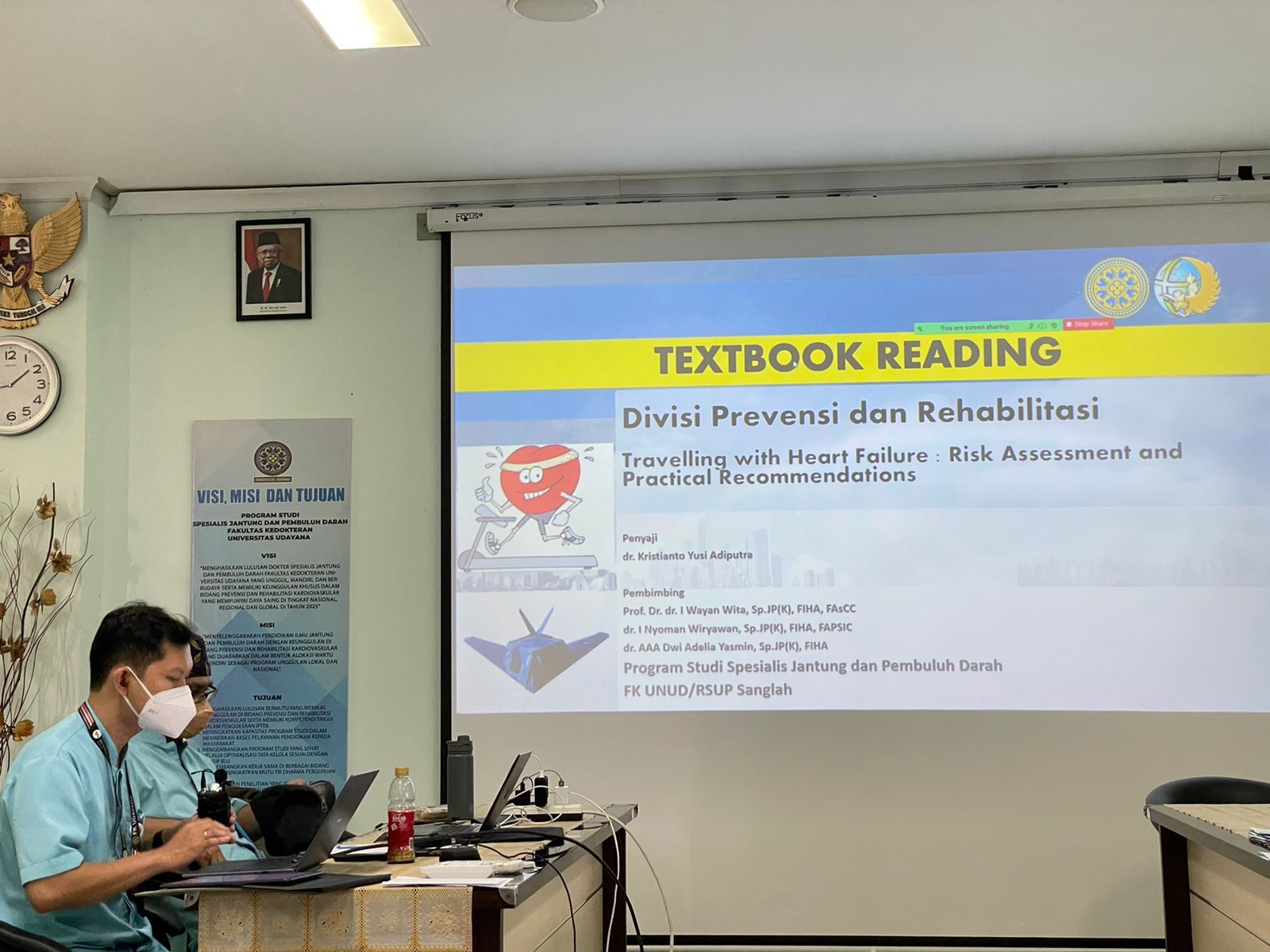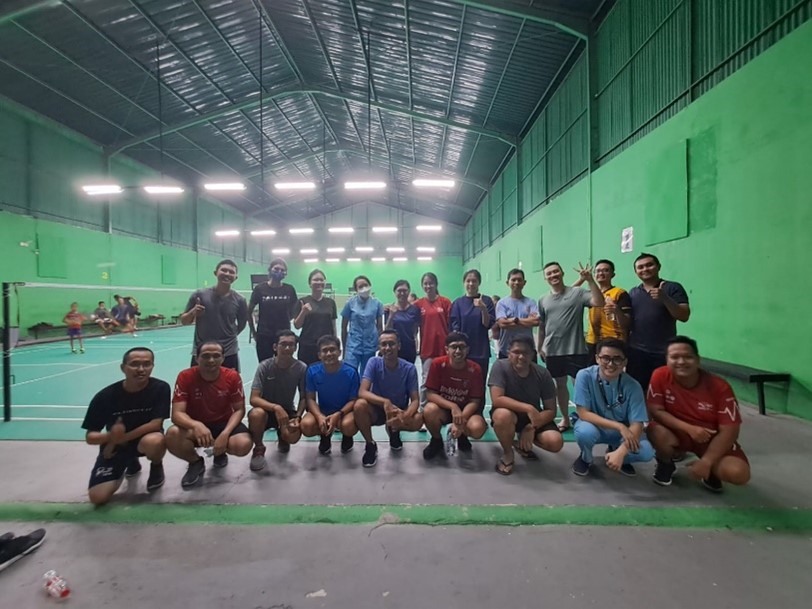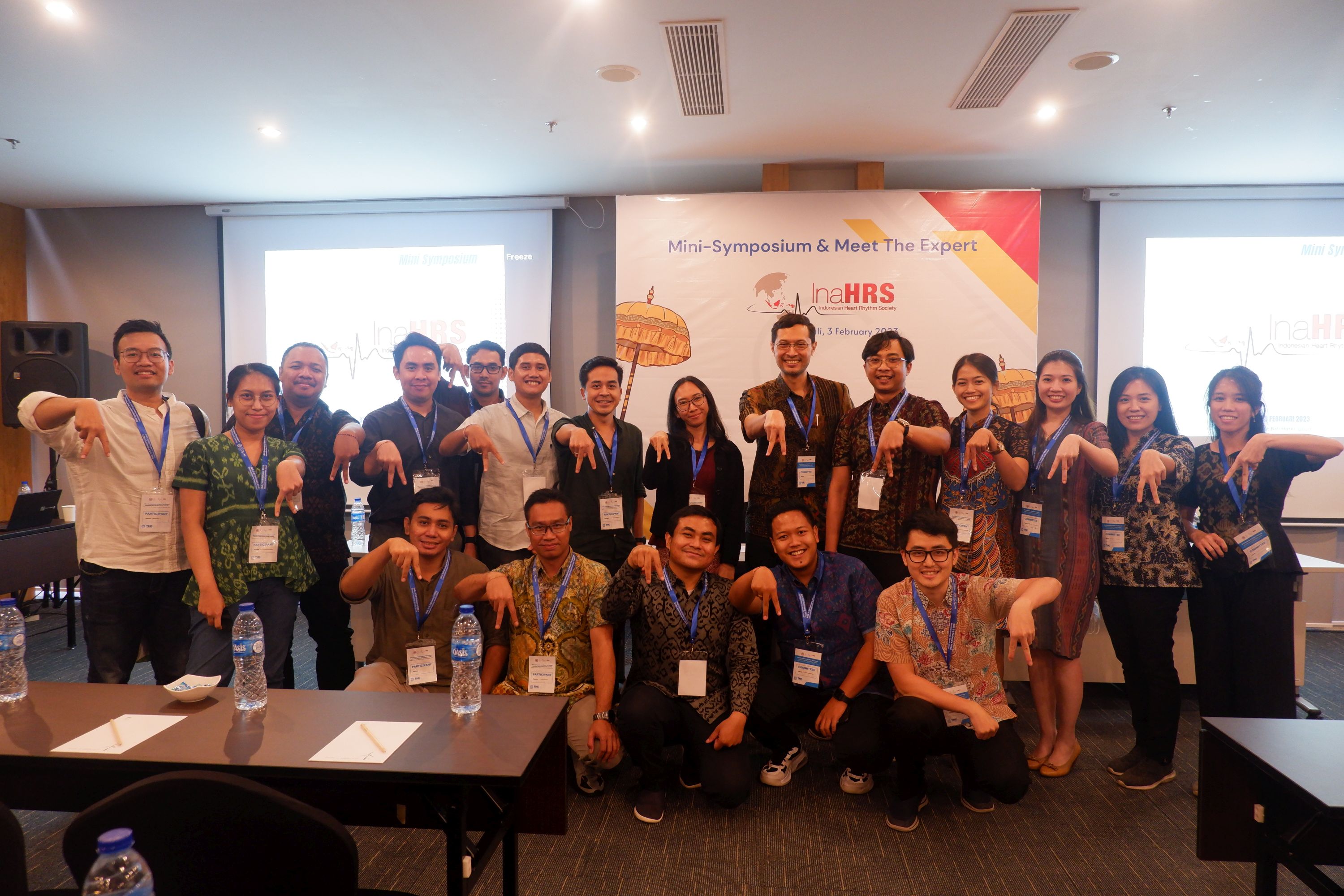Travelling With Heart Failure: Risk Assestment and Practical Recommendation, a Textbook Reading by Kristianto Yusi Adiputra., MD
Traveling is something that is routinely done by each individual, starting from traveling near or long distances. Traveling is not only done by a person with a healthy condition, but also by many individuals with poor health conditions or with congenital diseases. One of the most common congenital diseases carried by the elderly is heart failure. Patients with heart failure generally often travel both short and long distances. This raises the risk of complications or recurrence of symptoms that can arise due to many things that happen on the way.
It is important for a cardiologist to understand that patients often present with traveling conditions as recurrent symptoms that may be the cause. Including for students or prospective cardiologists who are undergoing education.
Located in the meeting room on the 4th floor of the Integrated Cardiac Service Installation at Sanglah Central General Hospital, on Thursday 7 July 2022, a textbook reading presentation by Dr Kristianto Yusi Adiputra was held. This presentation is about Traveling With Heart Failure: Risk Assessment and Practical Recommendations. The presentation was attended by Prof. I Wayan Wita, MD., FIHA, I Nyoman Wiryawan, MD., FIHA and A.A.A.Dwi Adelia Yasmin,MD., FIHA as supervising doctors.
This presentation was attended by all students in the fields of cardiology and vascular medicine both online and offline.
The conclusion of this presentation can be seen that,
- Patients with heart failure (HF) are recommended to schedule a specialist consultation for pre- travel risk assessment 4–6 weeks before departure.
- Preparation for travel requires special considerations in patients with HF, includine the choice of destination, availability of medical resources and strategies to prevent volume depletion.
- Most patients with HF can travel when medically stable; patients with a ground- level oxygen saturation ?90% or those in NYHA class III–IV might need an on- board medical oxygen supply.
- All medication and important documents should be stored in carry- on luggage.
- Volume depletion and dehydration are important considerations requiring meticulous attention with regards to medication adjustment and fluid intake.
- Patients with implantable cardiac devices might require extra time at security checkpoints and additional documents; for some patients, remote monitoring of implantable cardiac devices might be useful.




FACULTY OF MEDICINE, UDAYANA UNIVERSITY